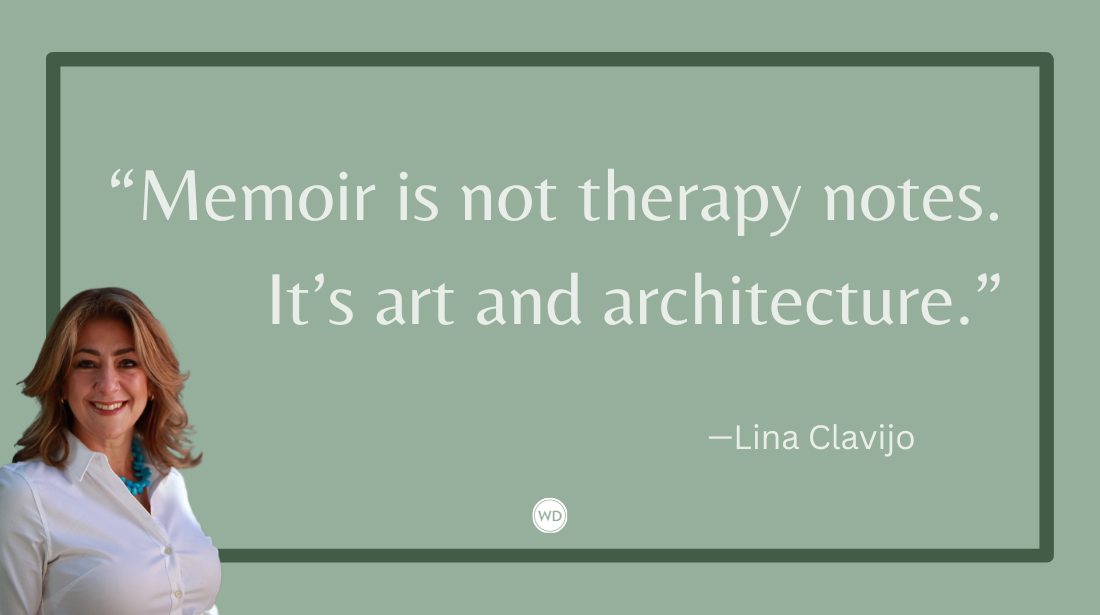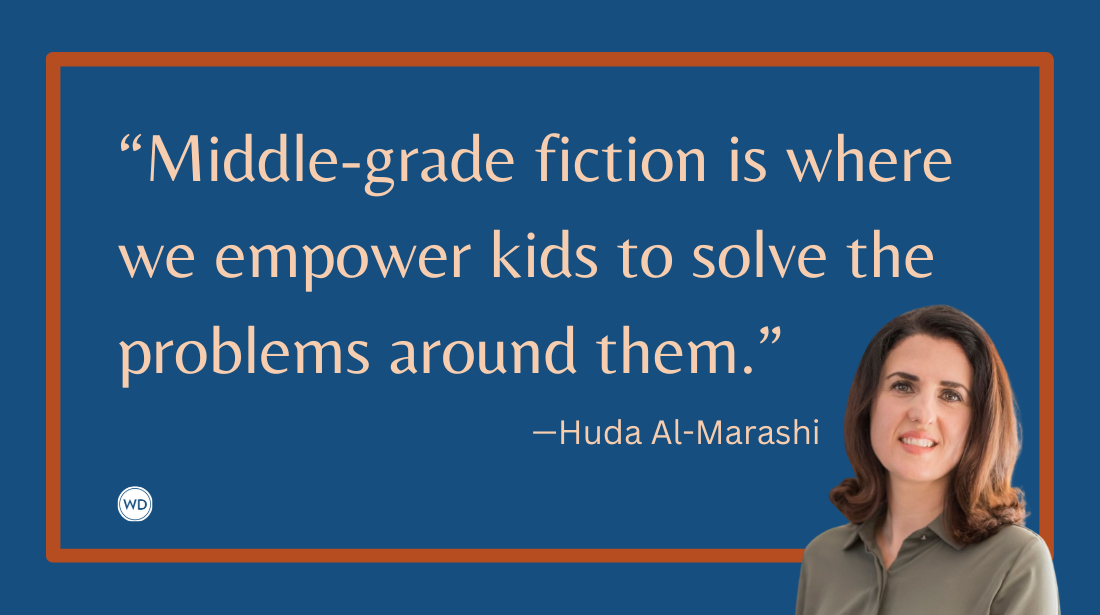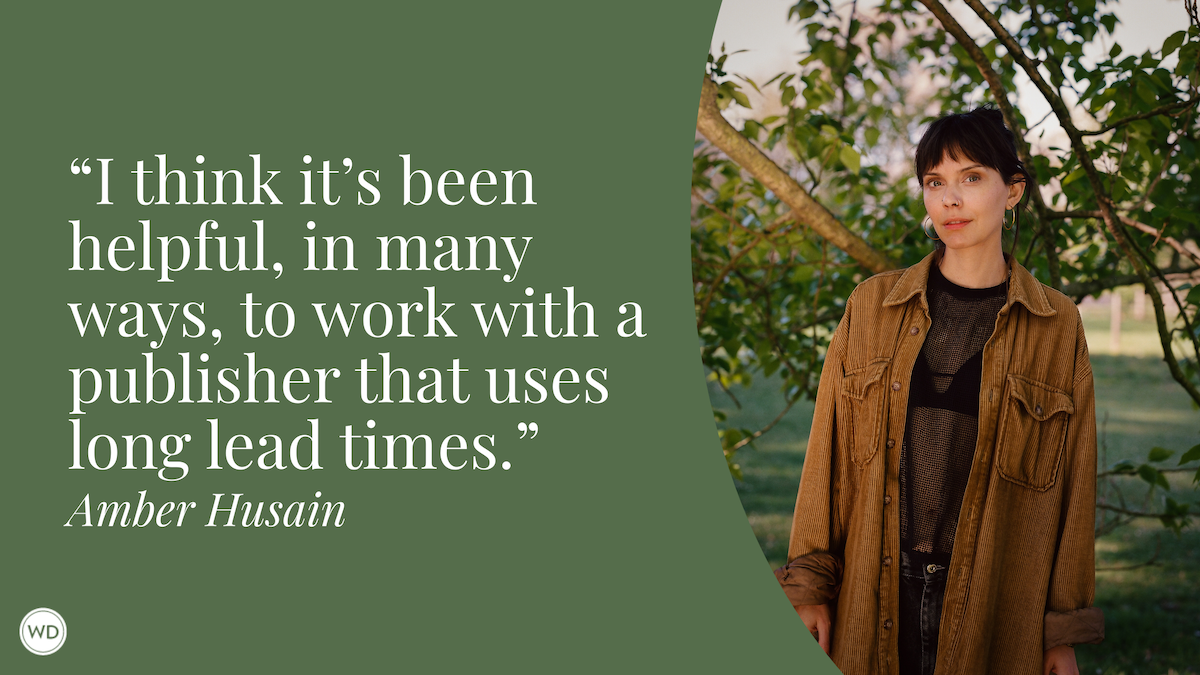How I Taught Myself to Write in English
Novelist Anne-Sophie Jouhanneau describes what it was like to transition from writing in French (her native language) to publishing her debut YA novel in English.
I was born in France to French parents and was exclusively educated in the French public school system. The repetition is intentional—the point is that growing up, no one around me spoke English. I learned it at school, like everyone else, but didn’t start speaking it on a regular basis until I was 21 when I moved abroad. Up until my very late 20s, there was no indication that I might one day be able to write professionally in English.
Yet, for the past several years, I’ve written copy for major American brands in the apparel, real estate, and travel industries. I published articles in Women’s Health Magazine and Refinery29, among others. In 2019, Penguin Random House offered me a two-book deal for young adult novels. The first one, Kisses and Croissants, comes out on April 6.
I always loved stories and well-crafted sentences, but what I really wanted, from a young age, was to live around the world and experience different cultures. For most of my teenage years, my English grades were average at best, until a three-week trip to a language school in London, and extra classes during my senior year, helped me up my game. I studied English (and German) for my first two years at university, before switching to a degree in information and communication.
By then, my English was pretty much fluent. I could hold a conversation, and write it OK. My grammar was solid, my vocabulary less so. After much planning and sending application letters, I snagged an internship at a Japanese advertising agency in Amsterdam. Even though I’d dreamed of it for years, many things terrified me about moving, alone, to a foreign country. My English wasn’t one of them. I spoke it well enough to get that internship over the phone. How different would it be to work and live in English all day long?
Very different, as it turned out. On my first day, my boss’s boss—a New Zealander who spoke fast and with a strange-to-me accent—called me into her office. I went in armed with a pen and notepad and listened as she gave a slew of instructions. A few minutes in, she stopped. “Why aren’t writing any of this down?” she said. The truth was that I didn’t understand her. At all. Admitting that felt too humiliating, so I jotted down the three words that I thought she might have said, smiled, and went back to my desk, sweating bullets. I’d been given a to-do list I couldn’t complete, because I had no idea what it was.
This, I decided, would never happen again. I wanted to live this life, and I would not let English stand in my way. I was going to master it.
With that in mind, I set out two rules for myself.
- Total immersion was key, which meant I couldn’t be around any of the other French ex-pats in Amsterdam. English or bust.
- Not understanding something was not an option. Marketing lingo. Slang, colloquialisms. I wouldn’t let anything slide. I had to stop and learn. And learn, and learn some more.
From then on, I surrounded myself with native English speakers and instructed my new friends to correct me every time I made a mistake. I’d forward emails from colleagues, with notes like, “I think this is a joke, but can you explain exactly what it means?” I asked questions and looked things up in the dictionary all day, every day. I read everything.
IndieBound | Bookshop | Amazon
[WD uses affiliate links.]
Here’s what I quickly found out. You don’t really know a word until you’ve explored all of its facets and used it in dozens of different sentences. Language is power. Being able to communicate clearly, with specificity, is an invaluable skill. My internship turned into a full-time role, during which I managed projects for international clients, writing proposals and selling work for large sums of money. Language was freedom—it meant evolving in my career, with more and more doors opening toward the life I aspired to.
Two years in, I met an Australian guy, freshly arrived in Amsterdam. English became love, the founding language of our relationship. A year and a half later, on the plane to Melbourne—where we were moving—I read a guide to Australian slang. I have a sharp visual memory, and these new phrases belonged to me the moment we landed. I had brekkie with mates, spent arvos doing some shoppo, and I never let anyone make fun of my French self for speaking ‘stralian. Language is confidence. You must speak it to own it.
By 27, I’d gotten a book contract with a French publisher. As I worked on my first nonfiction manuscripts, an idea started to swarm in my head. Could I write in English? Could I write fiction? Would anyone ever publish it?
To find out, I took a creative writing course and wrote a short story. It was strangely similar to my process in French: constant visits to an online thesaurus, debating every choice over and over. Always in pursuit of the right word.
A few months later, an opportunity arose to move to New York, my dream city. I’d lived outside of France for seven years at that point. My English was excellent, and I thought I knew all about culture shock. But I didn’t realize you couldn’t ask a New York taxi driver to open the boot of his car. That ground floors are first floors, and that Fahrenheits are… well, that I still don’t know, 10 years later. So, I learned English again. I discovered the Oxford comma, and that you’re supposed to have a stance on it (I’m pro, for what it’s worth). It turned out that “reckon” is only used in the South, that many phrases I knew from movies came from African-American English Vernacular, and that it was not appropriate for me to use them, no matter how much I liked them. Language is political. The words you choose can, and will, be used against you.
Like many New Yorkers, I decided I needed bigger dreams, and signed up for a TV writing course. The instructor praised my work—my dialogue, especially. I’d only been in the U.S. for a few months, my characters were American, and they sounded good? It didn’t make sense, but the pilot went on to reach the top 1 percent of a prestigious screenwriting competition, earning me representation in Hollywood. For the first time, industry professionals thought they could sell what I wrote in English.
Meanwhile, with no relevant experience, I applied for a freelance social media copywriting position at an advertising agency. By a stroke of luck, my resume was plucked out of the pile, and I came in for a trial day. I wrote tweets and Facebook posts for hotels around the country and, just like that, I became an English-speaking copywriter. I penned essays and articles, pitched publications, and got clips under my belt. I wrote more TV pilots, garnering interest from Amazon Studios and MTV. No one ever complained that my English wasn’t up to snuff.
The ultimate challenge awaited: hundreds of pages of prose. I’d been writing YA novels in French for a few years—published under a pen name. In 2017, as I was finishing my first one in English, I attended a writing conference. During a Q&A with a renowned agent, I asked how she would react if she received a query from a non-native English speaker. She answered that even British authors have a hard time getting book deals in the U.S. Was I sure I wanted to try?
I was, but she’d taught me a valuable lesson. I rewrote my bio, being vague about my education and my origins. I didn’t correct people who told me—rather than asked—that I was French-American. I was so close to making it that I was prepared to fake it on the way there.
I got an agent, wrote another novel, and was offered a two-book deal with Penguin Random House. In a few weeks, I’ll be going to my interview with the Department of Homeland Security, where I’ll be tested on my language ability, as part of my U.S. citizenship application. I think I might just take a copy of Kisses and Croissants, and let the 320 pages of my very own words speak for themselves.
Anne-Sophie Jouhanneau’s writing career began as a freelance journalist and now includes articles in Women’s Health Mag, Refinery 29, Yahoo Style, Yahoo Travel, and several other print and digital publications in both French and English. Anne-Sophie has published 17 books with French publisher Fleurus Éditions. Her YA series, Journal de Los Angeles (paperback, 2018), has sold tens of thousands of copies. Her English-language debut is Kisses and Croissants (Delacorte Press). Learn more about Anne-Sophie here.









